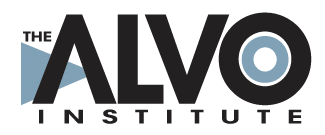By Christina Quattrocchi, EdSurge
With sites like BetterLesson and ShareMyLesson offering databases of lesson plans (with the help of partnerships with large teacher organizations), the arrival of Activate Instruction this summer may beg the question: what’s so special this time?
One answer may be: putting students in the driver’s seat.
Born out of a partnership between Summit Public Schools, the Girard Education Foundation, the student data platform Illuminate Education, and The Alvo Institute, Activate Instruction is a free student-focused resource sharing platform that allows teachers to create, share and organize resources into “playlists.” Students work through the playlists at their own pace.
Activate Instruction was created out of “a vision of what education should be,” according to Jon Deane, Chief Information Officer of Summit Public Schools. The goal was to “totally modularize content and deliver it to kids so that they could access resources that were tied to standards.”
While teachers use the tool to create playlists from curated content from their own libraries, the web, and from other teachers, it is the student experience that distinguishes Activate Instruction. Students can use playlists to drill down into specific skills they are lacking or skip over resources they don’t like. Students also report their experience with each resource, by marking it as “liked” or “disliked,” reporting how much time it took them, and whether they learned from the resource.

Student preference data is tracked and reported above each resource and playlists. Teachers and students can use this data to evaluate whether they want to use the resource or not. Students are the drivers of their own learning, with teachers merely charting the course.
Data generated from the tool doesn’t stop with student opinions, it also drills down into their skills. Through its open API, the platform can connect to any student achievement database. Playlists link pre- and post-assessments to the school’s database, giving teaches the power to track how student learning was affected by each playlist.
After a year-long pilot at Summit, and a summer spent in partnership with San Diego’s High Tech High, the platform has been populated with free, teacher reviewed Common Core-aligned content from providers such as BrainPOP, Quizlet, CK-12 and Khan Academy. Content is currently available for grades 6-12 in subjects like math, English, science, history, and Spanish.
Teachers like Kevin Bock, an 11th grade History teacher at Everest Public High School, were part of the team responsible for populating the Activate Instruction platform with high-quality resources. According to Bock, the content in the system “articulates clear learning objectives, gives students a variety of resources for each objective, links to opportunities to practice and receive immediate feedback, and has clear assessments so that students will know when they are ready to move on.”
Summit plans to implement the tool fully into their school model. It plans to use the tool to support personalization and to free up teacher time to focus on paying attention to deeper learning skills and project-based learning. For Bock, he will spend his time “dealing with the challenges of project-based learning, while basic skill building will be directed to Activate.”
This fall, as schools get ready to engage students in Common Core exercises and attempt to further personalize learning, Summit won’t be the only school to use Activate Instruction. School districts like Sanger, Tustin, North Monterey County, KIPP and Alpha Public Schools have plans to use the platform with teachers and students. Entrepreneur-in-Residence at Alpha Public Schools, Will Eden, finds the platform appealing overs because “with adaptable programs teachers don’t know what content is being taught and how to align their instruction to it, if it aligns at all.”He finds Activate Instruction so appealing because it’s free, easy to use, and integrates well with the school’s data platform.
